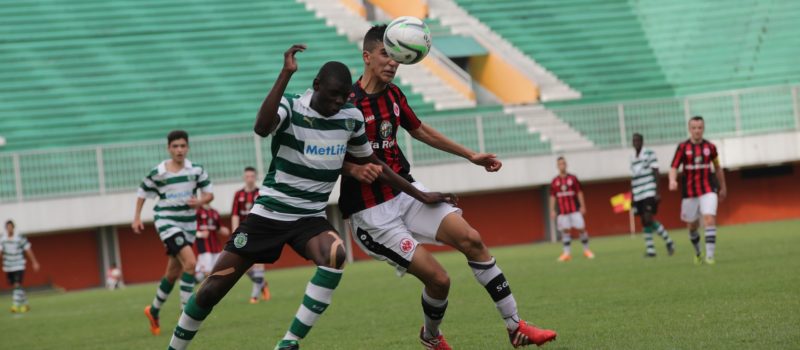
Concussion in Youth Sport
(Guest contributions from Adam Burns)
Concussions in young athlete’s are a growing concern in today’s contact sports. No parent wants to see a child sustain any injury let alone one that may impact their brain. It is important to be able to recognize and appropriately treat a concussion when it happens. Ultimately, through management we seek to avoid potential further complications or ongoing issues beyond childhood.
What is a concussion?
A concussion is a traumatic closed brain injury that occurs as a result of a force applied to the body. This force can be directly applied to the head/neck but can also occur anywhere else on the body where the forces are transferred to the head. A concussion can result from one large impact. There is also evidence that a concussion can be the result of a number of smaller repeated impacts to the head. A concussion can present with a number of symptoms, the most common of which include:
- headaches,
- loss of consciousness,
- balance issues,
- difficulty with vision and
- sleep disturbances.
These symptoms may manifest immediately but they may also take a few days to appear.
How can a concussion be identified?
If an athlete sustains a blow to the head, or is exhibiting any of the above symptoms, an immediate sideline evaluation should be performed. There are a number of tools available, however one of the most common ones is the “Sport Concussion Assessment Tool.” This tool contains several tests that can be administered immediately and include quick screening questions of orientation, memory and other cognitive abilities. This test can be administered by a qualified professional immediately following the injury and can be beneficial for identifying early signs and symptoms of concussion. The tests can also be used as a measure to gauge progress over time. Any athlete that is suspected to have suffered a concussion should be removed from play. The most recent consensus statement released by the international conference of concussion in sport states that “the suspected diagnosis of a sport related concussion can include one or more of the following clinical domains:
- Symptoms: somatic (eg, headache), cognitive (eg, feeling like in a fog) and/or emotional symptoms (eg, lability)
- Physical signs (eg, loss of consciousness, amnesia, neurological deficit)
- Balance impairment (eg, gait unsteadiness)
- Behavioural changes (eg, irritability)
- Cognitive impairment (eg, slowed reaction times)
- Sleep/wake disturbance (eg, somnolence, drowsiness) (McCrory et. al, 2017).”
If a concussion is identified, the athlete should be immediately referred to a medical professional for ongoing evaluation and management.
What should I do after the diagnosis and when can I return to play?
Research is showing that the best thing in the early days following a concussion is rest. For the first 24-48 hours the athlete should be allowed a period of both physical and cognitive rest in order to decrease the energy demands of the brain. Following this, a gradual rehabilitation program should begin. There is no one size fits all formula for the recovery process. How one persons brain recovers can be quite different than an other’s. For this reason, a customized treatment plan that adapts to the patients progress, or lack thereof, is essential.
The question we get asked most often by concussed athletes and their families is “when can I/my son/daughter return to sport?” As mentioned, each concussion is unique, and each recovery will be unique as well. The current protocol describes a graduated return to activity, with no activities beyond a level that brings on symptoms. This process generally takes a minimum of a week. There is some evidence that a large majority of concussions will resolve within a month, but unfortunately some concussions can take longer than a month for the athlete to recover from and in other situations they can be incomplete.
What can physiotherapy do for me or my child?
Since concussions can manifest with a number of different symptoms, a proper concussion assessment should be wide ranging and comprehensive. At Leading Edge, we pride ourselves on having the technology and expertise to provide you with a one of a kind assessment and treatment plan. This plan can include musculoskeletal treatment, sport specific training, balance training, vestibular rehabilitation, and specific return to sport/activity planning. Concussions can affect all aspects of your child’s life from their ability to participate in sport, to their sleep habits/patterns to their ability to perform at school. Our programs may also incorporate an Occupational Therapist for cognitive training or specially trained Optometrist for vision assessment and management. A comprehensive treatment plan should include input from the athlete, coach and teachers. Each concussion is as unique as the individual and we believe the treatment plan should be too!
If you or your child has suffered a concussion or a suspected concussion, give one of our experts in Edmonton, St. Albert or Sherwood Park a call and let us help your child return to doing what they love.
In Health and with all of our passion for your pursuits,
Grant Fedoruk
